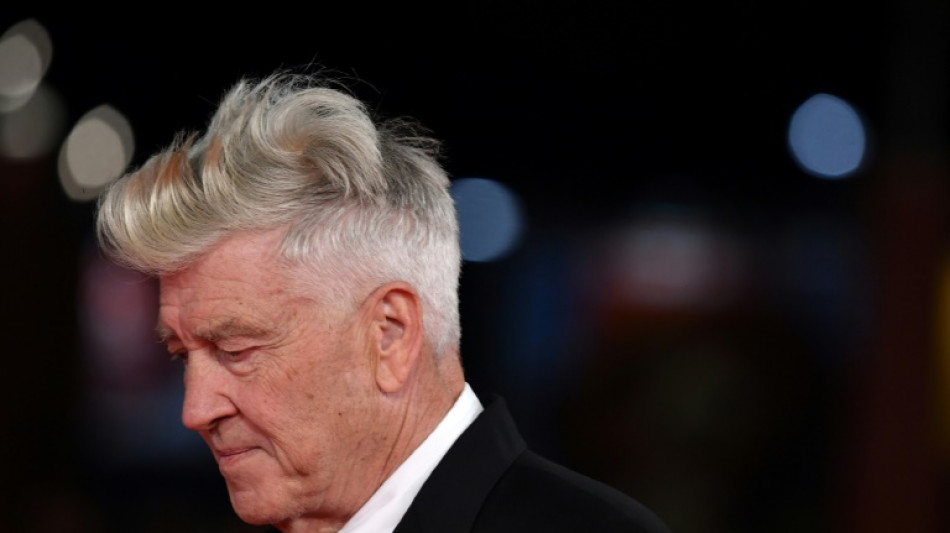
'Mulholland Drive' and 'Twin Peaks' director David Lynch dies at 78

David Lynch -- the groundbreaking director behind "Mulholland Drive" and television's "Twin Peaks," who gained a cult following for his unsettling portraits of American life -- has died. He was 78 years old.
An enigmatic artist who turned his hand to arthouse and blockbuster film, television, painting and music, Lynch was considered first and foremost one of US cinema's great auteurs.
"It is with deep regret that we, his family, announce the passing of the man and the artist, David Lynch," read a statement on his official Facebook page.
"There's a big hole in the world now that he's no longer with us. But, as he would say, 'Keep your eye on the donut and not on the hole.'"
The cause and location of death were not specified. Lynch, who lived in Los Angeles, had suffered from emphysema after years of heavy smoking.
He emerged on the US indie scene with his groundbreaking 1977 horror "Eraserhead," a creepy and now cult classic shot on a shoestring budget over five years because he kept running out of money and had a wife and daughter to support.
Lynch acquired a devoted following with critically adored films including sadomasochist mystery "Blue Velvet" (1986) and surreal thriller "Mulholland Drive" (2001).
But he may be best remembered for his mesmerizing 1990s series "Twin Peaks," which paved the way for many a prestige television drama to follow.
With four Oscar nominations, including a trio of best director nods, the filmmaker recognizable by his shock of white hair took home just one honorary statuette, in 2019.
- Rise to fame -
Born in small-town Montana in 1946, the son of a US Department of Agriculture research scientist, Lynch travelled extensively around Middle America as a young man.
He excelled at art at high school in Virginia, and attended fine arts colleges in both Boston and Philadelphia, where he studied painting.
A one-minute animated film caught the eye of the American Film Institute, where he began work on what would later become "Eraserhead."
That was followed by 1980's "The Elephant Man," also shot in black-and-white and deeply tragic, but decidedly more mainstream and accessible.
Based on the diary of Joseph Merrick, the so-called "Elephant Man" born in the United States in 1862 with a condition that gave him a severely deformed physical appearance, it starred Anthony Hopkins, John Hurt, Anne Bancroft and John Gielgud.
Hurt in the title role earned one of the film's eight Oscar nominations -- as did Lynch for best director.
An attempt to adapt sci-fi novel "Dune" into a blockbuster in 1984 would be one of Lynch's less well-received efforts, although it still has its admirers.
Lynch pivoted back to his arthouse roots with "Blue Velvet," about a young man who comes home from college and finds a severed ear. His investigation uncovers the sinister side of small town America.
It starred Isabella Rossellini and Dennis Hopper, along with his regular collaborators Kyle MacLachlan and Laura Dern, and is often heralded as his greatest work. It also earned Lynch's second Academy Award nomination for directing.
Lynch turned his attention to television with "Twin Peaks," which captivated and shocked American in equal measure from its 1990 launch.
The tale of a small and tight-knit northwestern town reacting to the rape and murder of a popular but troubled high school girl, it was years ahead of its time and far more sophisticated than most network programming even today.
But ratings plummeted as the show's second series lost its direction after the purported meddling of ABC executives. An even darker 1992 prequel film was initially panned by critics, but is now considered a classic.
- Later years -
After returning to film with "Lost Highway" and "The Straight Story," Lynch in 2001 made his second undisputed masterpiece, "Mulholland Drive, which brought Lynch his third best director Oscar nomination.
In this baffling world of hallucinations and cryptic happenings, Naomi Watts plays a wholesome actress who meets a mysterious brunette suffering amnesia, before everything gets inverted in an astonishing twist that still has fans arguing over its meaning to this day.
Film writer David Thomson called it "one of the greatest films ever made about the cultural devastation caused by Hollywood."
Lynch's final full-length feature film was 2006's inscrutable "Inland Empire," although he returned to the world of "Twin Peaks" with an acclaimed sequel series for cable network Showtime in 2017.
But he never retired, continuing to produce short films, music and paintings from his studio and home -- appropriately located just outside Hollywood, on Mulholland Drive.
"It's a beautiful day with golden sunshine and blue skies all the way," said the statement from his family, nodding to Lynch's regular, whimsical online postings about the weather.
A.M.James--TNT